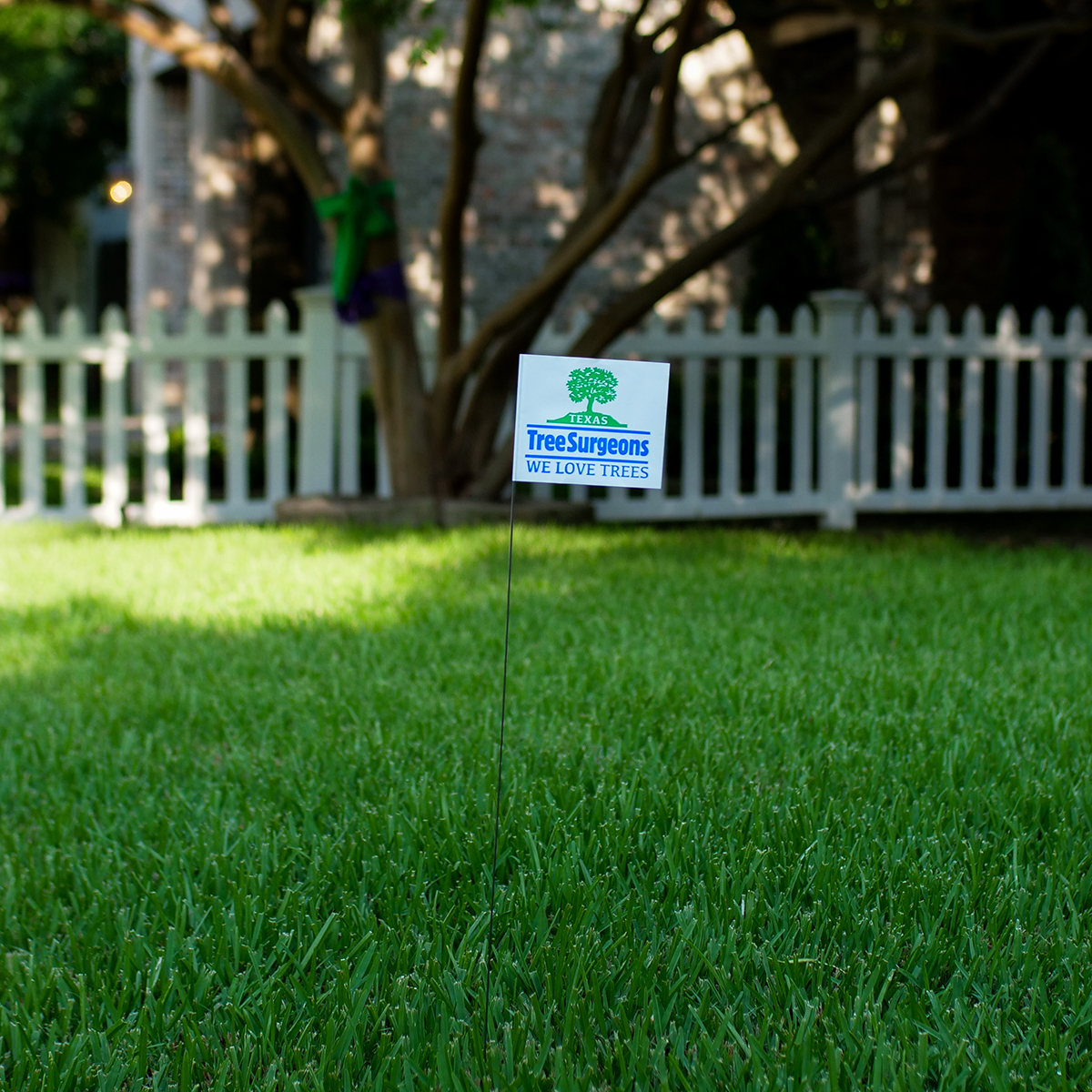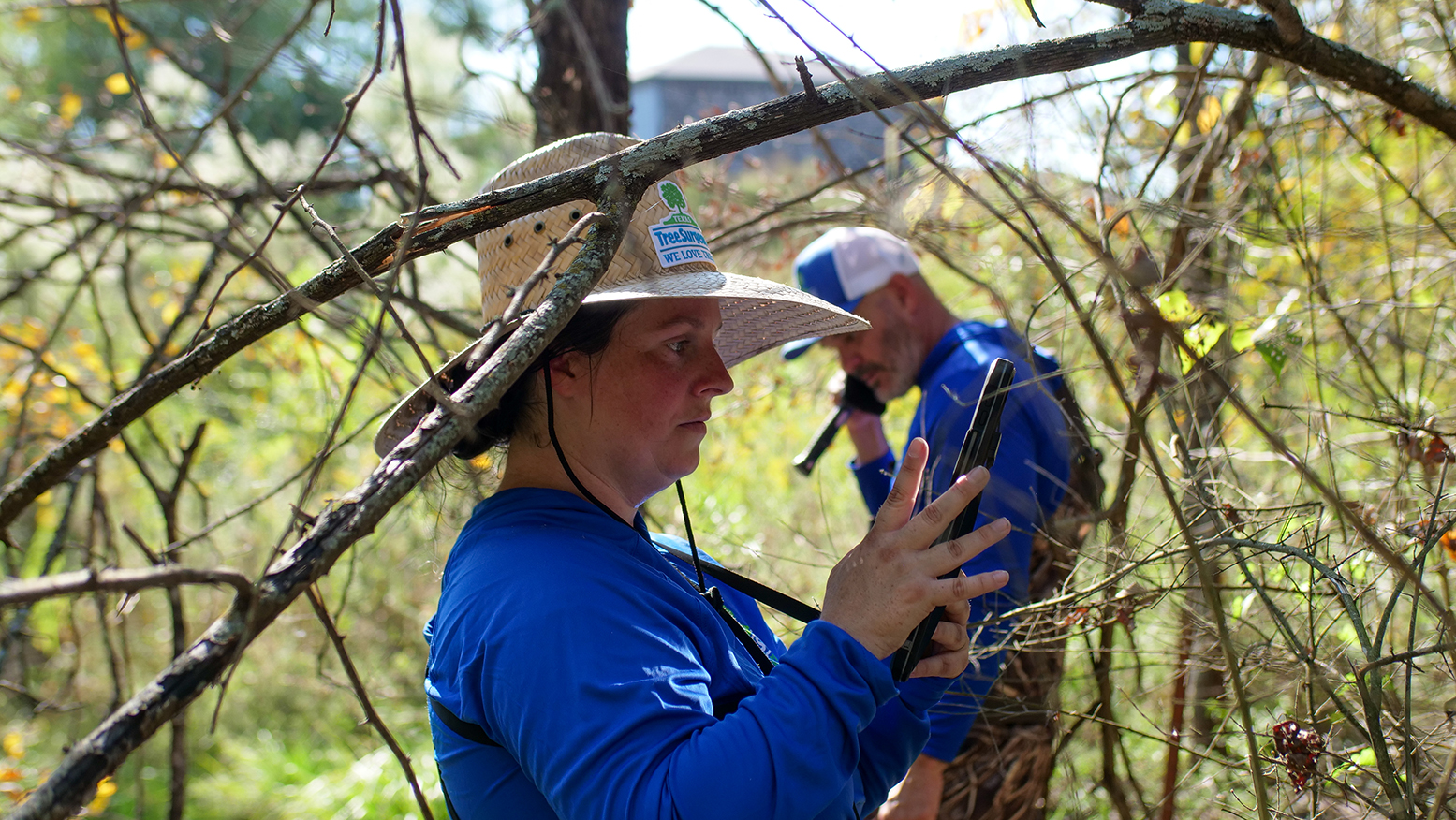What are These Small, Green Worms Hanging Off My Trees?

In the spring and fall, we often get calls about small, green worms or caterpillars hanging on web-like threads from trees and structures. While they may be off-putting, and can be rampant some years, they should not be a cause of serious concern.
So, What are They?
While there are many similar-looking small caterpillars and worms, the variety most commonly seen in North Texas is the cankerworm. These inchworm-like caterpillars are the larvae of moths, usually the hackberry leafroller moth (Sciota celtidella). While the leafroller caterpillars usually emerge in the spring, depending on the weather they can also be active in the fall. The caterpillars spin thin strands of web-like filament that they use to move from tree to tree and to aid in feeding.
Should I be Worried?
While the hackberry leafroller can cause defoliation, there is little cause for concern. Healthy trees in good soil can withstand extensive defoliation. While trees that are under stress may suffer more from unseasonal leaf loss, hackberries are hardy, native trees in North Texas and will likely recover during the next growing season. In areas of high activity, the ground may be temporarily discolored, but this should clear up after the next heavy rain.
All About Hackberries
Hackberry trees are a common sight in DFW, and have even lent their name to several areas and neighborhoods! What we call hackberries may be of a few distinct tree species, but are all in the genus Celtis. Hackberries are fast-growing softwood trees that can often be found as volunteers along fences and hedgerows, grown from seeds dropped by birds and other animals that feed on the trees’ berries. Because of their fast growth and structure, and because they are often overlooked, hackberries can be prone to limb and trunk instabilities. One particular danger is root rot caused by the Kretschmaria deusta fungus.
Should I Do Anything?
Unfortunately, once the caterpillars emerge and begin feeding there are no effective insecticidal treatments. Using a water hose or other method to remove caterpillars from trees and structures can help some, but it is important to make sure that the removed caterpillars are disposed of so that they don’t simply re-infest the tree. Proper maintenance, especially of stressed trees, is usually all that is needed to ensure a hackberry recover from leaf rollers. Water correctly and avoid high-nitrogen fertilizers, opting instead for organic soil amendments to improve the tree’s microenvironment. As the population of leafroller caterpillars varies from year to year depending on environmental and other factors, preventative treatment is usually not recommended, due to low success rate and risk of over-usage of insecticidal chemicals.
At Texas Tree Surgeons, we love trees and we love our community! While it’s always a little startling to see unseasonal leaf drop, losing leaves doesn’t necessarily mean a tree is doomed! We are always happy to have one of our ISA Certified Arborists out to look at your hackberries (or any other trees) and let you know if what you are seeing needs to be addressed. Get in touch today!
Related Blogs
Similar blogs related to this topic


Top 10 Things We'd Tell You as an Arborist if We Weren't Afraid of Hurting Your Feelings
This is a list of tree care worst practices that you, or someone you know may be guilty of. Read the following list at your own risk. You’ve been warned, feelings may get hurt. 1.…
Read more

Avoid These Tree Care Mistakes for a Healthy Landscape
Below is a list of overlooked mistakes that could jeopardize the health of your trees. From missteps in pruning to incorrect watering practices, discover how to give your trees the care they deserve. Red oak…
Read more

Why do Arborists Recommend Soil Sampling in Urban Areas like Dallas?
Soil sampling is a crucial practice in urban areas like Dallas. It helps arborists make informed decisions about your landscape to ensure a healthy urban ecosystem. Our native soils vary widely—from the dense clays of…
Read more
